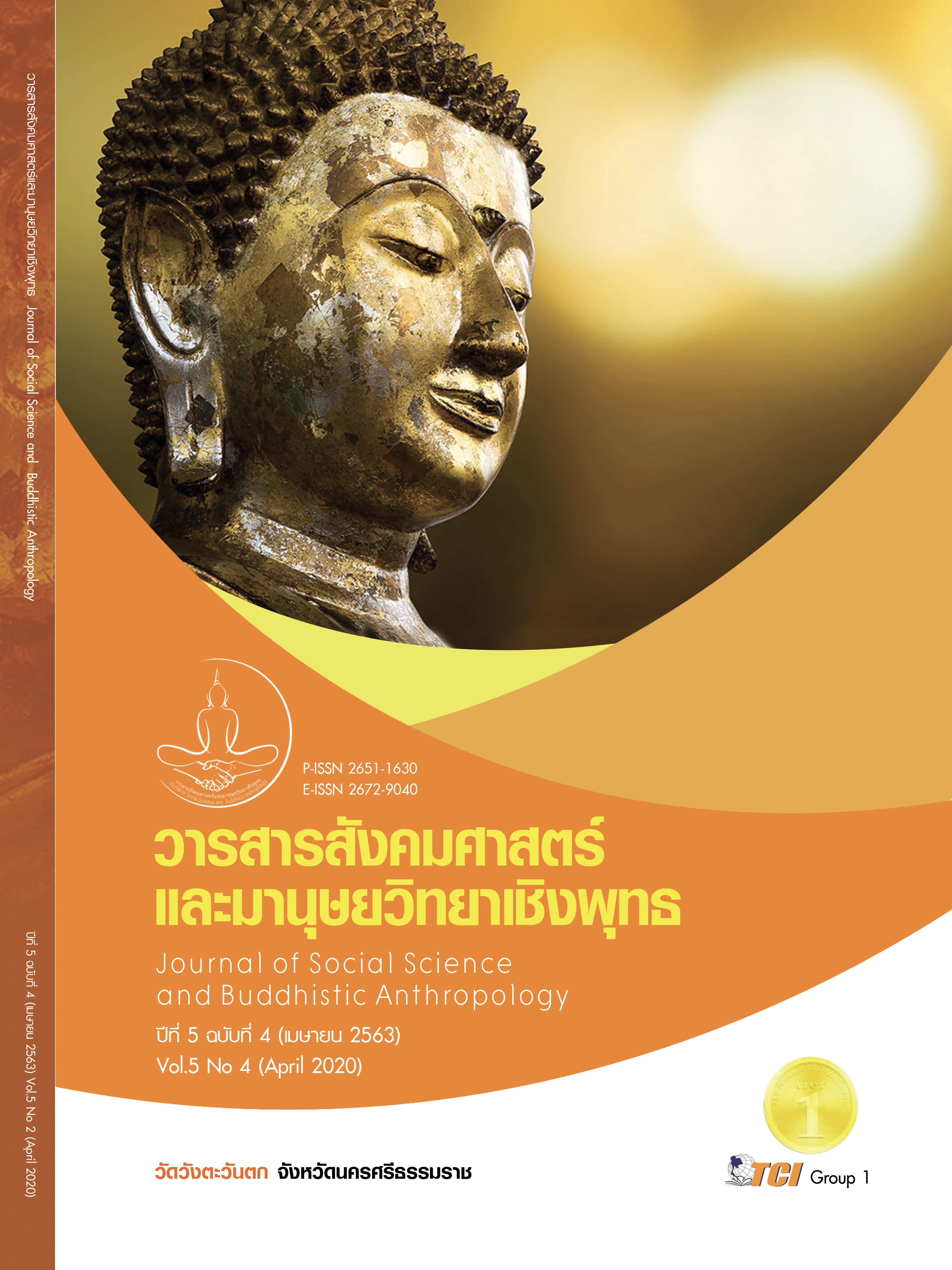THE EFFECTS OF ORGANIZATIONAL CULTURE ON THE EFFICIENCY OF ACCOUNTING INFORMATION TECHNOLOGY INSTITUTE OF VOCATIONAL EDUCATION
Keywords:
Effects, Organizational Culture, Efficiency Of Accounting Information Technology, Vocational EducationAbstract
The purposes of this quantitative research were to study 1) The Organizational Culture and the Efficiency of Accounting information technology Institute of Vocational Education, and 2) The Effects of Organizational Culture on the Efficiency of Accounting Information Technology Institute of Vocational Education. This research is based on the Quantitative Research. The sampling group for this study was the accountants of educational institute of vocational education in the amount of 337 persons. The tool used for data collection was questionnaire. An analysis has been completed by a statistic analyzing program to obtain various descriptive statistics such as Frequency, Percentage, Mean, and Standard Deviation. The statistics used in hypothesis testing are Multiple Regression Analysis. The result of the study found that: the accountants of educational institute of vocational education opinion toward organizational culture of institute of vocational education in general was at the high level and they are opinion toward efficiency of accounting information technology institute of vocational education in general was at the high level. The results of the effects of organizational culture on the efficiency of accounting information technology institute of vocational education found that the Development Culture, Hierarchical Culture, and Group Culture which effected to the accounting information technology institute of vocational education in all aspects statistical significance at the level of 0.05 were follow the hypothesis. Moreover, it could be found that the Development Culture, Hierarchical Culture, and Group Culture which effected to the accounting information technology; the Relevance, Timeliness, and Verifiable in all aspects statistical significance at the level of 0.05 and the Hierarchical Culture, Development Culture, Group Culture, and Rational Culture which effected to the accounting information technology; the Accuracy in all aspects statistical significance at the level of 0.05 were follow the hypothesis.
References
กลุ่มเทคโนโลยีสารสนเทศเพื่อการบริหารงานอาชีวศึกษา. (2558). สถานศึกษาในสังกัด. เรียกใช้เมื่อ 4 มิถุนายน 2559 จาก http://www.vec.go.th/เกี่ยวกับสอศ/สถานศึกษาในสังกัด.aspx
กาญจนา เกสร. (2555). ความสัมพันธ์ระหว่างวัฒนธรรมองค์การกับประสิทธิผลของโรงเรียนสังกัดสำนักงานเขตพื้นที่การศึกษาประถมศึกษาปทุมธานี เขต 1. ใน วิทยานิพนธ์ศึกษาศาสตรมหาบัณฑิต สาขาเทคโนโลยีการบริหารการศึกษา. มหาวิทยาลัยเทคโนโลยีราชมงคลธัญบุรี.
จารุวรรณ บุตรสุวรรณ์. (2551). ผลกระทบของการเรียนรู้ขององค์กรและการสนับสนุนขององค์กรที่มีต่อประสิทธิภาพระบบสารสนเทศทางการบัญชี. ใน วิทยานิพนธ์บัญชีมหาบัณฑิต สาขาวิชาการบัญชี. มหาวิทยาลัยมหาสารคาม.
ดวงฤดี ชีวนุกูล. (2556). ความสัมพันธ์ระหว่างการเรียนรู้ขององค์กรกับประสิทธิภาพระบบสารสนเทศทางการบัญชีของธุรกิจนำเข้า-ส่งออกเฟอร์นิเจอร์ไม้ในประเทศไทย. ใน วิทยานิพนธ์บัญชีมหาบัณฑิต สาขาวิชาการบัญชี. มหาวิทยาลัยสงขลานครินทร์.
ธิราวรรณ วิวัฒนากรวงศ์. (2558). ผลกระทบของวัฒนธรรมองค์การที่มีต่อคุณภาพข้อมูลงบการเงินในวิสาหกิจขนาดกลางและขนาดย่อม. ใน วิทยานิพนธ์บัญชีมหาบัณฑิต สาขาวิชาการบัญชี. มหาวิทยาลัยธุรกิจบัณฑิตย์.
วรรณวิมล ศรีหิรัญ. (2553). ปัจจัยที่มีผลต่อประสิทธิภาพการใช้สารสนเทศทางการบัญชีของผู้บริหารบริษัทในตลาดหลักทรัพย์แห่งประเทศไทย. ใน วิทยานิพนธ์บัญชีมหาบัณฑิต สาขาวิชาการบัญชี. มหาวิทยาลัยเทคโนโลยีราชมงคลพระนครเหนือ.
อิทธิพัทธ์ คัมพรรัตน์. (2556). วัฒนธรรมองค์กรของบุคลากรวิทยาลัยอาชีวศึกษาดุสิตพณิชยการ. ใน วิทยานิพนธ์รัฐประศาสนศาสตรมหาบัณฑิต สาขาวิชารัฐประศาสนศาสตร์. มหาวิทยาลัยรัตนบัณฑิต.
Chang et al. (2003). The Effect of Task Uncertainty, Decentralization and AIS Characteristics on the Performance of AIS: An Empirical Case in Taiwan. Information and Management, 40(7), 691-703.
Likert Rensis. (1967). The Method of Constructing and Attitude Scale. In Reading in Attitude Theory and Measurement. P.(90-95). Fishbeic, Matin, Ed. New York: Wiley & Son.
Taro Yamane. (1973). Statistics: An Introductory Analysis. (3rded). New York: Harper and Row Publication.
Vincent Cho. (2007). A Study of The Impact of Organizational Learning on Information System Effectiveness. International Journal of Business and Information, 2(1), 127-158.
Xu Hongijiang. (2000). Managing Accounting Information Quality: An Australian Study. International Conference on Information Systems, 12(05). 628-634.









